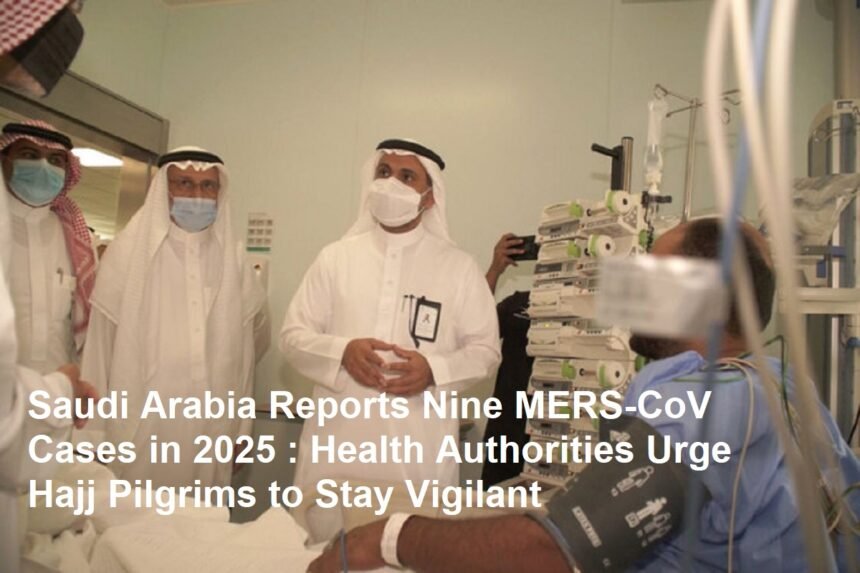The Saudi Arabian Ministry of Health has recently confirmed nine cases of Middle East Respiratory Syndrome Coronavirus (MERS-CoV) between March 1 and April 21, 2025. This development has raised concerns as the annual Hajj pilgrimage approaches, prompting health officials to issue important advisories to ensure the safety of millions of pilgrims traveling to Mecca.
Understanding MERS-CoV
MERS-CoV is a viral respiratory illness first identified in Saudi Arabia in 2012. It belongs to the coronavirus family, which also includes viruses responsible for illnesses like SARS and COVID-19. MERS-CoV typically causes severe respiratory symptoms such as fever, cough, and shortness of breath. The virus is particularly dangerous for older adults and people with underlying health conditions like diabetes, kidney disease, or chronic respiratory illnesses.
The fatality rate of MERS-CoV is approximately 35%, making it a serious public health concern in the Middle East. The virus is believed to be transmitted from camels to humans, with limited human-to-human transmission primarily occurring in healthcare settings or close contact situations.
Recent Cases and Seasonal Patterns
The nine cases reported in early 2025 align with the seasonal pattern of MERS-CoV outbreaks, which tend to occur more frequently during the spring months. Although the number of cases remains relatively low, the timing is critical as it coincides with preparations for the Hajj pilgrimage, a mass gathering event that attracts millions of people from around the world.
Saudi health authorities emphasize that there is currently no evidence of sustained human-to-human transmission in the community, and genetic analysis of the virus shows no significant mutations that would increase its spread or severity.
Implications for the Hajj Pilgrimage
The Hajj pilgrimage is one of the largest annual mass gatherings globally, drawing over two million Muslims from more than 180 countries. Such large-scale events pose unique challenges for infectious disease control, especially for respiratory viruses like MERS-CoV.
To protect pilgrims, the Saudi Ministry of Health has issued several precautionary recommendations:
- Practice rigorous hand hygieneusing alcohol-based sanitizers frequently.
- Maintain physical distancingwhere possible, especially in crowded areas.
- Wear face masksin enclosed or crowded spaces.
- Avoid contact with camels and other animalsthat may carry the virus.
- Seek immediate medical attentionif experiencing respiratory symptoms such as fever, cough, or difficulty breathing.
Additionally, enhanced health screening will be conducted at entry points and throughout pilgrimage sites. Mobile clinics and rapid response teams will be deployed to promptly identify and manage any suspected cases.
Saudi Arabia’s Experience and Preparedness
Saudi Arabia has extensive experience managing MERS-CoV outbreaks since the virus was first discovered. The country has developed robust health protocols for mass gatherings, including:
- Real-time disease surveillance systems to monitor cases.
- Advanced laboratory testing for rapid diagnosis.
- Specialized isolation and treatment facilities.
- Comprehensive contact tracing and quarantine measures.
The World Health Organization (WHO) has praised Saudi Arabia’s proactive and comprehensive approach to infectious disease control during the Hajj, which has helped prevent large-scale outbreaks in the past.
Global Health Significance and Outlook
While MERS-CoV remains a localized threat primarily in the Middle East, its potential to cause severe illness and death makes it a global health concern. The upcoming Hajj season is a critical period for vigilance, as the influx of international pilgrims could facilitate wider spread if preventive measures are not strictly followed.
Health authorities worldwide are closely monitoring the situation, and Saudi Arabia continues to collaborate with international partners to ensure the safety of pilgrims and the global community.









